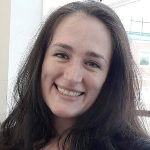
Providing Mumbai residents with their universal right to water
Dr Deljana Iossifova, Senior Lecturer in Urban Studies, School of Environment, Education and Development, discusses one of the most important global challenges: universal access to water.
Reducing health inequalities
The right to water is a fundamental human right at the heart of social, economic and environmental sustainability. Because access to water can go a long way in reducing inequalities, it has its own Sustainable Development Goal (SDG 6). Slum dwellers in India’s mega-cities jeopardise their safety and health in relying on expensive water from street vendors or illegally tapped-into municipal water pipes. Residents without access to piped water depend on informal suppliers who charge up to 100 times more than the municipality and offer water of sometimes questionable quality. Poor nutritional status and increased mortality are just a few of the associated health risks. In India, more than seven children per 10,000 residents die from diarrhoea resulting from lack of sanitation.
As international health agencies highlight the need to wash hands regularly and maintain personal hygiene as the first defence against the spread of COVID-19, at least two million people in Mumbai do not have access to clean and safe water. On occasions, when water becomes available, social distancing norms can quickly become compromised. The possibility of spreading the virus is high when sharing water taps. Now that Mumbai has emerged as one of the global hotspots of COVID-19, it is more urgent than ever to transform access to water in the city.
The right to water is a fundamental human right at the heart of social, economic and environmental sustainability.
Dr Deljana Iossifova / Senior Lecturer in Urban Studies, School of Environment, Education and Development
Water for all through digital innovation
In Mumbai, The University of Manchester works closely with community activist group PHS, who advocate the right to water in informal settlements. In 2014, Pani Haq Samiti (PHS) initiated a High Court ruling that Mumbai should supply water to all residents, regardless of their legal status. PHS volunteers have supported some 5,000 households in filing 1,100 applications for municipal water connections. However, only 68 of these have been approved to date; the rest have been stuck or lost in the municipal approval system. With multiple ward offices shutting down due to COVID-19 cases, even longer delays in processing applications can be expected.
In collaboration with PHS, the University is developing an app that tracks how applications for water connections pass through Mumbai’s complex bureaucratic system. The app will speed up the approval process and contribute to the provision of safe water to tens of thousands of disadvantaged urban residents. Ultimately, it could be adopted by the municipality itself, thus making governance more transparent and implementers accountable.
This is the first attempt to use digital technology for the purpose of identifying and removing roadblocks in the approval process. The wider community will benefit from improved access to safe water, which is crucial in times of COVID-19 and beyond.
Having the right expertise
Working in India can be an extremely rewarding experience for academics. The boundaries between research and its application are unusually blurred. As leader of the Right to Water app project as well as the Royal Society project, Dr Iossifova collaborates directly with PHS, a collective campaigning for the right to clean and safe drinking water for all. She is supported by Purva Dewoolkar, her doctoral student and research associate.
Many colleagues are uniquely positioned at the interface of academia, policy and practice and operate with ease across these domains to help shape the contemporary city towards inclusivity, safety, resilience and sustainability.
This is best illustrated by The University of Manchester’s very own Purva Dewoolkar, a School of Environment, Education and Development PhD Scholarship student originally from Mumbai. Purva trained as an architect and spent the last decade as a researcher associated with TATA Institute of Social Sciences’ Habitat Unit. She is also an activist working with PHS.
In addition to her doctoral research, Purva is a research associate on the University’s project R2W – the Right to Water track app. This transdisciplinary project tackles one of the most important global challenges: universal access to water. The idea for this project emerged from close engagement with local campaign members, NGOs and government officials in Mumbai as part of the Royal Society Global Challenges Research Fund project ‘Towards Sustainable Sanitation in India and Brazil’.

